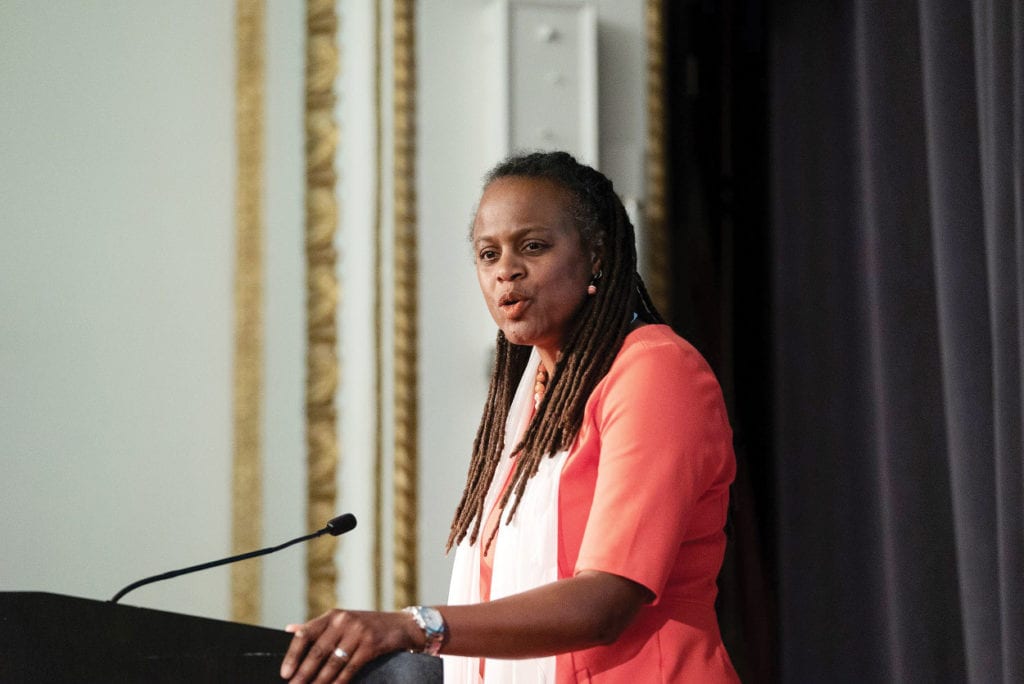
Beth Chandler is the new President and CEO of YW Boston (formerly the YWCA of Boston), an organization that working to help organizations create more inclusive environments where women, people of color, and in particular women of color, can thrive. Chandler has been serving in the role in the interim since long-term President and CEO, Sylvia Ferrell-Jones, retired last September, two months before she passed away.
The naming of the new President and CEO comes at a time of transition for the organization, and at a critical time for our city as it seeks greater gender equality and leadership diversity. With racial and gender disparities at alarming levels in Boston, YW Boston engaged in a strategic planning process to refine its programs and develop more targeted solutions to address Greater Boston’s racial and gender inequities. Going forward, the YW will work to educate and empower individuals, organizations, and corporations to take action toward a more equitable society, from exploring personal bias to changing policies and practices at corporations and institutions.
“For more than two decades, I have worked to further the rights of women and people of color,” says Chandler. “It’s an honor to lead the YW as it works to empower all individuals, while also reshaping the power dynamic within corporations and organizations in our city so they are more equitable, and therefore stronger and more productive. Evidence that links diversity to corporate financial performance is becoming increasingly prevalent.”
Under Chandler’s guidance the YW will provide education and support to mid- and senior-level managers in nonprofits, corporations, schools and government organizations so they can be change agents for racial and gender equality. It will do this work through three initiatives—Dialogues on Race and Ethnicity, Youth Leadership Initiative, and LeadBoston.
Throughout its history, YW Boston has confronted the most pressing social issues of the times, from civil rights, education reform, equal job opportunities, pay equity, access to health care, and other causes central to the elevation of women’s rights.






